Florida looks like paradise in the brochures—endless sunshine, palm trees, and white-sand beaches. It’s no wonder millions of people move here each year, drawn by warm winters, no state income tax, and a relaxed lifestyle.
But here’s the truth: not everyone who moves to Florida stays. Some people find that life in the Sunshine State isn’t exactly what they expected. From weather surprises to hidden costs, a lack of preparation or buying in the wrong community can turn the Florida dream into frustration.
If you’ve been asking yourself “Should I move to Florida?” this guide will help you decide if the Florida lifestyle is truly right for you. You’ll learn the real pros and cons of moving to Florida—and how to avoid the mistakes that cause regret later.
For a deeper look at everyday life here, check out The Top Pros and Cons of Living in Lakewood Ranch FL.
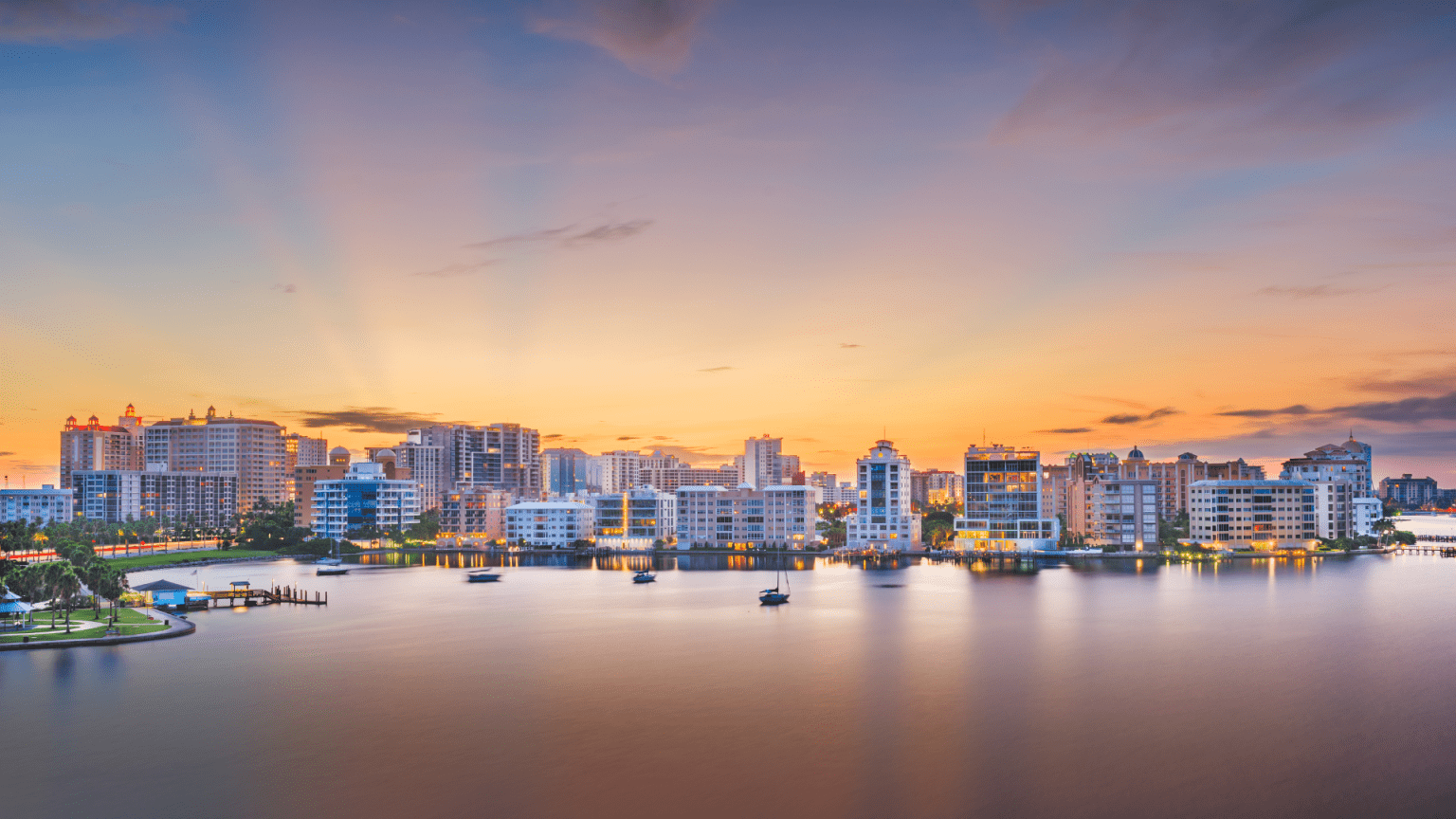
When people think of Florida, they picture blue skies and beach days. And yes, from January through April, the weather is incredible—warm, sunny, and dry.
But summer in Florida is another story. From May through September, expect high humidity, daily thunderstorms, and a “feels-like” temperature often over 100°F.
If you’re moving to Florida from New York or another cooler climate, it can take time to adjust. Outdoor activities shift earlier in the morning or later in the evening, and A/C becomes your best friend.
Tip: If possible, visit during July or August before you move. It’s the best way to experience the living in Florida reality and see whether the summer climate truly fits your lifestyle.
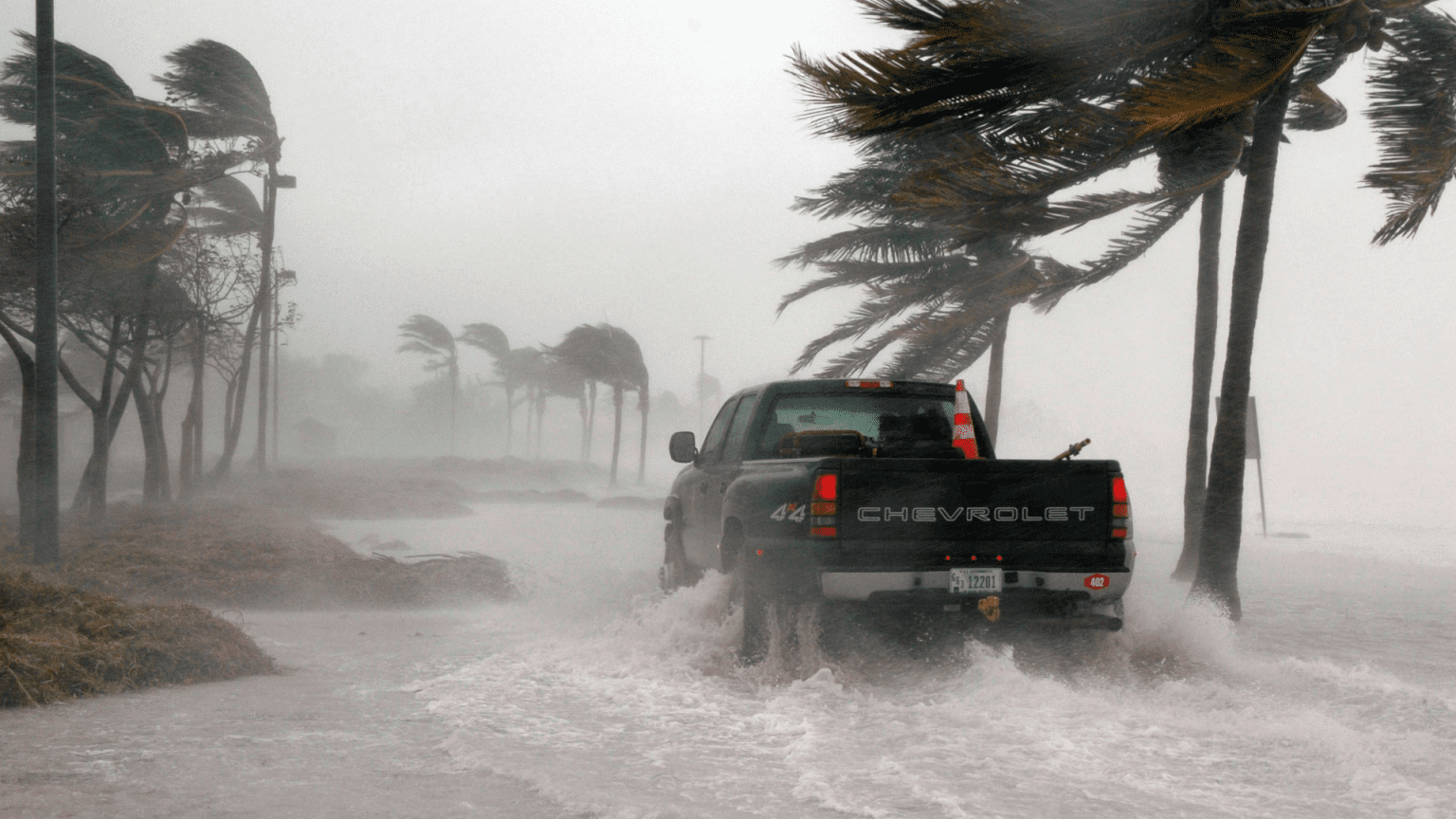
Hurricanes are part of life in Florida, but that doesn’t mean you have to live in fear. The key is being prepared and understanding your location’s risk.
Location matters. Flooding is the biggest source of damage, especially near the coast or rivers.
Elevation is key. Higher ground means lower flood risk.
FEMA Flood Zones determine your insurance costs—know them before you buy.
Newer homes are built to stricter codes, which often perform better during storms.
While hurricanes grab headlines, most of Florida’s newer communities—like Lakewood Ranch or North River Ranch—usually see much less damage. That’s because they’re located farther inland, away from the storm surge and coastal flooding that cause the majority of destruction during major storms.
In addition, these newer master-planned communities are built to modern hurricane codes, with many homes featuring impact-resistant windows, reinforced roofs, and advanced drainage systems, all of which greatly reduce the risk of severe damage.
You can look up a property’s flood zone through FEMA or ask your Realtor or insurance agent for details.
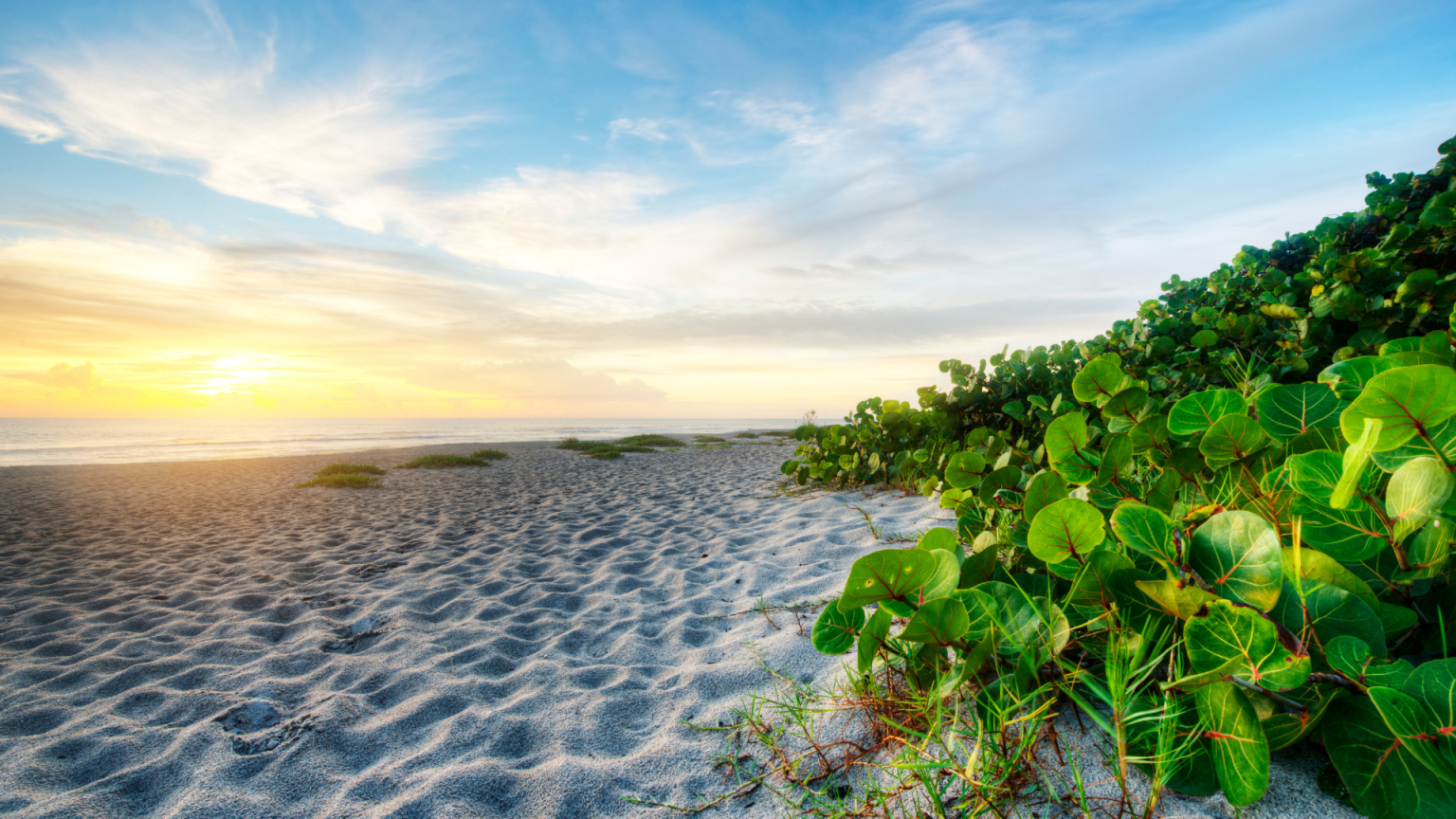
Florida living is slower and more relaxed than most northern states. For many, that’s a dream come true. But for others—especially those coming from major cities like New York, Chicago, or Boston—the change can feel drastic.
Service speed, local culture, and even how business gets done can take getting used to. If you thrive on hustle and fast-paced energy, you might experience a bit of “culture shock.”
The good news? Once you settle in and embrace the laid-back pace, many find it’s a welcome change from the stress of big-city life.
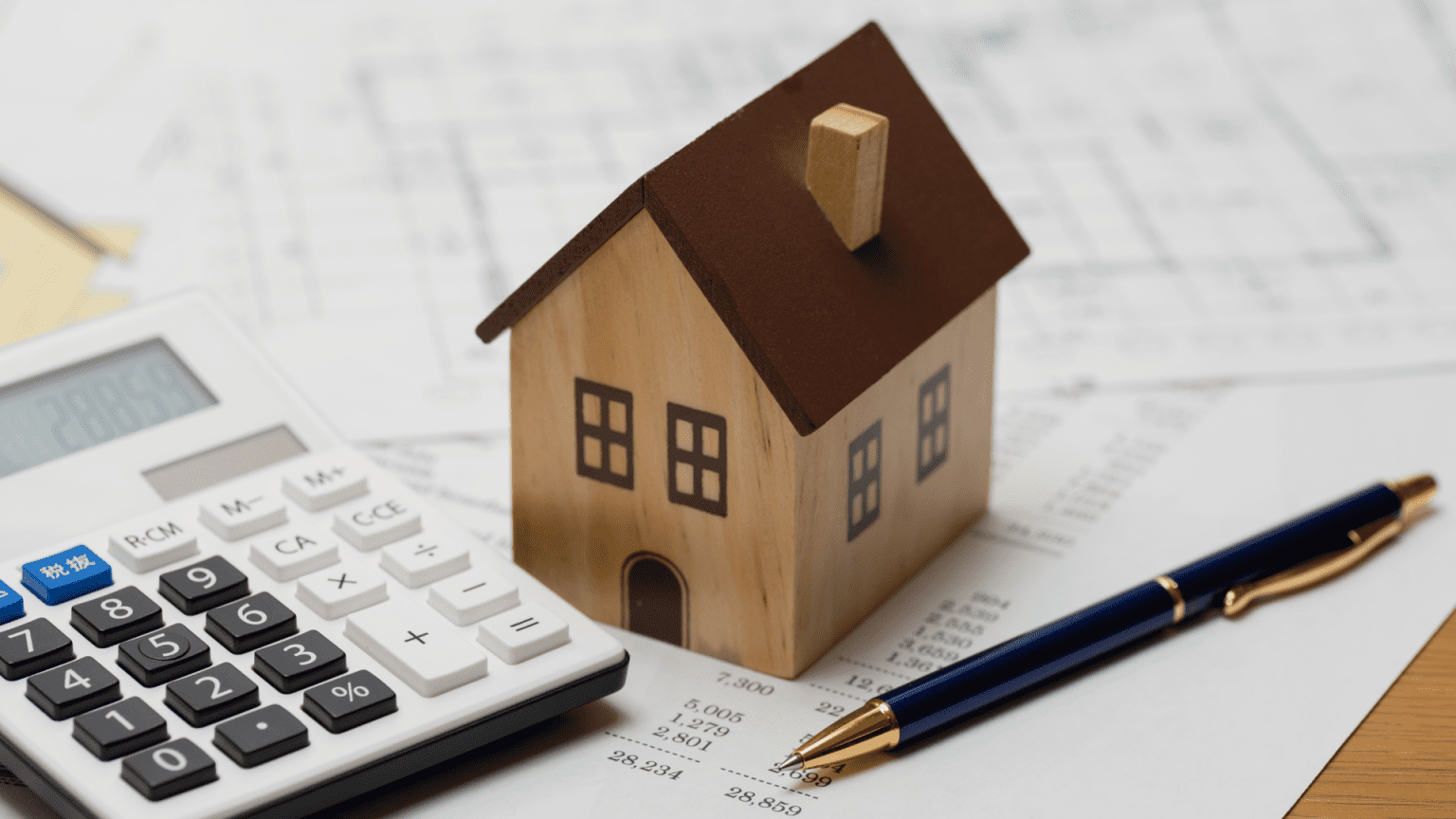
Florida may not have a state income tax, but that doesn’t mean it’s cheap. Many newcomers are surprised by:
Homeowners insurance, especially in coastal areas
HOA and CDD fees in master-planned communities
Flood insurance for certain zones
Higher electric bills in the summer months
Before moving, it’s smart to get estimates for property taxes, insurance premiums, and monthly utilities based on the exact area you’re considering.
Communities like Lakewood Ranch often have CDD fees (Community Development Districts) that fund neighborhood infrastructure—but those fees vary widely between villages.
If you’re weighing the costs of moving to Florida, remember that while you’ll save on income tax, other costs can quickly balance it out so it’s important that you know how to find a great deal on home.

Relocating to Florida often means leaving family behind. At first, it’s exciting—new scenery, new adventures—but after a year or two, distance can take an emotional toll.
Holidays, birthdays, and special occasions can feel lonelier without close friends or family nearby. And while video calls help, they can’t replace being physically present for life’s milestones.
It’s also worth noting that Florida can be polarizing—some people love it, others can’t wait to leave. You might find some friends or relatives support your move, while others question it.
If you’re relocating for retirement or lifestyle, think about how often you’ll want to visit home—and whether that fits your schedule and budget.

Florida’s wildlife is part of what makes it special—but it takes some getting used to. You’ll likely encounter:
Mosquitoes and fire ants in summer
Lizards and frogs in screened lanais
Occasional alligators near ponds or lakes
For most Floridians, it’s simply part of life. Regular pest control, landscaping, and a bit of awareness go a long way toward keeping your home comfortable.
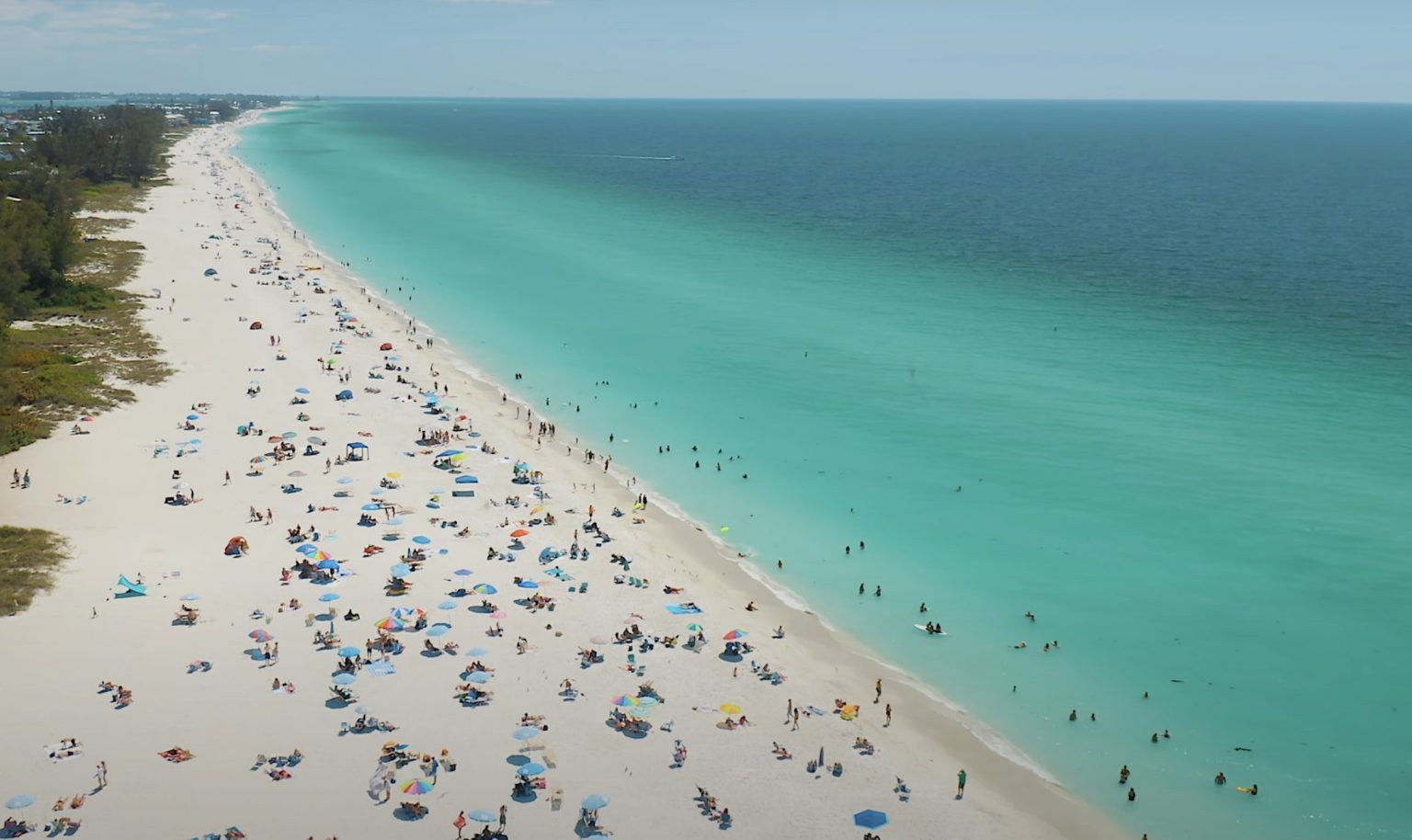
From January through April, Florida fills up with snowbirds and tourists escaping winter. Beaches get crowded, restaurants stay full, and traffic—especially around Sarasota, Siesta Key, and Anna Maria Island—can double overnight.
While some locals enjoy the energy, others find the crowds frustrating. The trick is to adapt your schedule—visit beaches early, dine midweek, and learn the back routes locals use to get around.
After Easter, “season” winds down, and you’ll have your favorite spots practically to yourself again.
You Might Like: Living in Sarasota vs. Lakewood Ranch – Which Is Better?
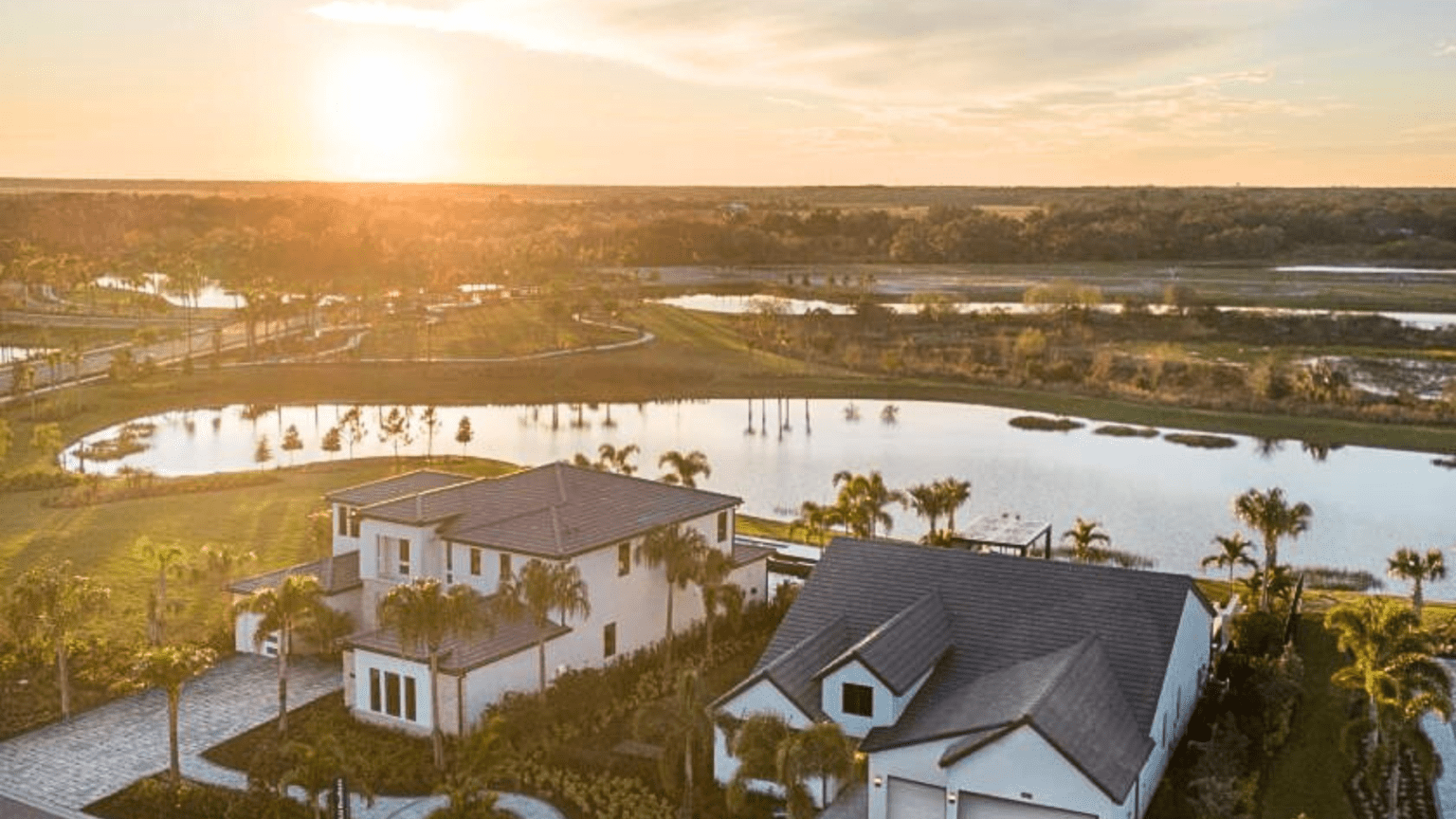
When you add up hurricanes, humidity, and higher insurance costs, you might think these are good reasons not to move to Florida. But if you’re prepared, none of these have to be deal-breakers.
That’s the key difference between people who love Florida and those who regret moving here: expectations. When you know what to expect and plan ahead, you can enjoy everything this lifestyle offers without the unpleasant surprises.
Related: Moving to Sarasota – 5 Things that Could Make or Break Your Move!
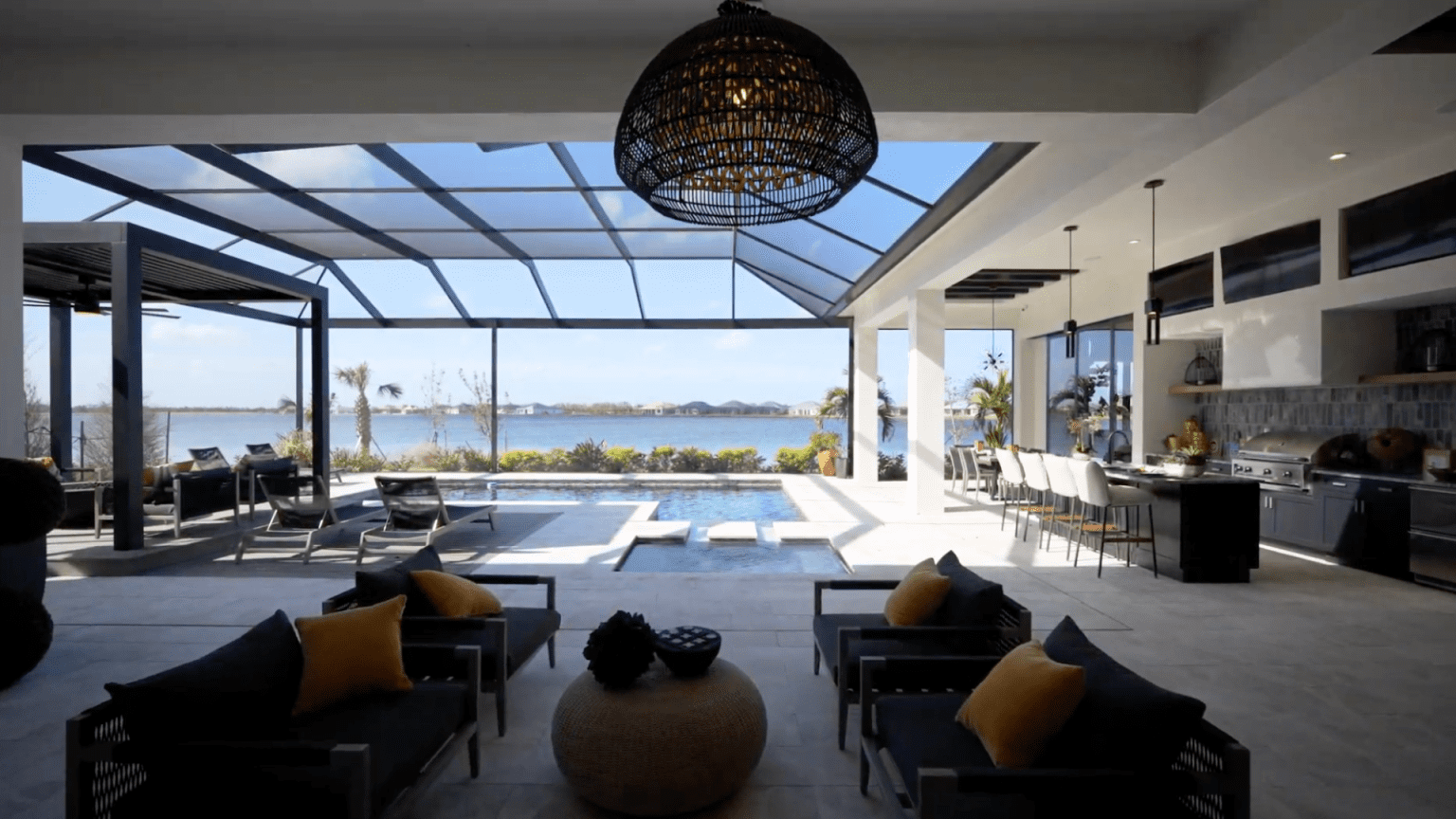
Despite these challenges, millions of people absolutely love living in Florida—and wouldn’t trade it for anywhere else.
The key difference? They moved with realistic expectations and chose communities that truly fit their lifestyle.
Whether you’re dreaming of resort-style living in a gated neighborhood, golf course living in Lakewood National, or a low-maintenance villa in Del Webb Catalina, there’s a perfect place for nearly every lifestyle and budget.
So, is Florida a good place to live? Absolutely—if you know what to expect and find a community that fits your lifestyle.
📘 Free Resource: The Top Home Buyer Mistakes and How to Avoid Them
Florida can be a fantastic place to live—no state income tax, warm winters, and an outdoor lifestyle—but it’s not for everyone. Whether you should move depends on how comfortable you are with heat, humidity, storm season, and a slower pace of life. Understanding both the pros and cons before moving helps ensure you’ll love it here long-term.
Common regrets include underestimating the summer heat and humidity, the cost of homeowners and flood insurance, adjusting to hurricane season, and being far from family. Others are surprised by HOA or CDD fees, seasonal crowds, and Florida’s wildlife.
Many newcomers forget to budget for higher homeowners insurance, HOA or CDD fees, potential flood insurance, and increased utility bills during summer months. Costs can vary dramatically depending on whether you live near the coast or inland.
The risk is real—but it varies widely by location. Coastal and low-lying areas face greater risk from storm surge and flooding. Meanwhile, inland communities with higher elevation and good drainage experience far less damage. Choosing the right area and understanding your flood zone makes a big difference.
Interior, higher-elevation master-planned communities—like Lakewood Ranch or North River Ranch—typically see fewer issues because they’re farther inland and built to modern building codes with impact-resistant windows, reinforced roofs, and advanced drainage systems.
Summers in Florida are long, humid, and stormy, with “feels-like” temperatures often above 95°F. It rains almost daily, especially in the afternoons. Many locals adapt by doing outdoor activities early in the morning or later in the evening and rely heavily on air conditioning.
Hurricane season officially runs from June 1 to November 30, with the peak typically occurring in August and September. However, not all parts of Florida are affected equally each year. Staying prepared and choosing the right home location will help minimize risk.
It depends on your property’s location and FEMA flood zone. Homes in high-risk zones (like AE or VE) usually require flood insurance, while homes in low-risk areas may not. Your Realtor or insurance agent can help you determine whether it’s necessary for your specific property.
It all depends on what you find important—some people want golf and resort-style amenities, while others prefer low-maintenance living or proximity to the beach. However, it’s worth noting that Lakewood Ranch has been named the #1 master-planned community in the U.S. for all ages for the past six years, thanks to its beautiful neighborhoods, strong sense of community, and wide range of amenities for every lifestyle.
I wrote this article because I’ve seen too many people move to Florida with the wrong expectations—only to end up frustrated or regretting their decision later.
Florida truly is an incredible place to live—if you know what to expect. The sunshine, outdoor lifestyle, and opportunities are why so many people come here and never look back.
The key is being prepared for the real Florida, not just the picture-perfect version you see online. My goal is to make sure you go in with eyes wide open so you can love your new life here.
And here’s the truth: choosing the right community makes all the difference. Get that right, and a lot of the challenges we talked about become minor details instead of deal-breakers.
If you’re serious about moving to Florida, I’d love to help you find the perfect fit.
📞 Contact me today or book a free consultation through my Proven Buyer Process.